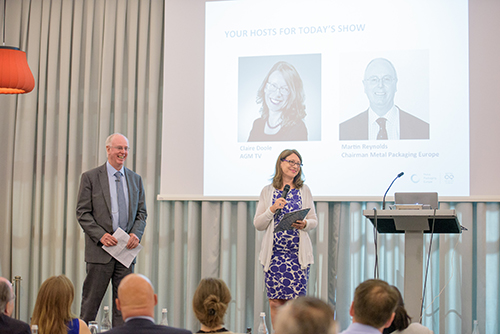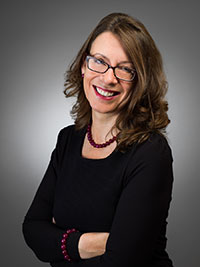
Metal Packaging Europe, AGM, Lisbon
By Claire Doole, Claire Doole Communications
A straw poll of colleagues and clients confirmed my view that people often confuse the different roles.
I frequently receive confused requests. Not so long ago, I was asked to moderate when in fact after some discussion the client and I agreed they needed instead a Master of Ceremonies. Another client contacted me to moderate, but in fact what they required was a Master of Ceremonies and facilitator.
When organizing an event, how do you make sure you get the right person for the right job?
Some broad definitions to keep in mind:
- A moderator guides the discussion, often but not always in a panel format.
- A Master of Ceremonies is responsible for the "show* - the whole event as it unrolls on the day.
- A facilitator is responsible for a process - helping people make decisions and achieve results.
While there are differences in responsibilities, there is a common base of skills across the three roles: you need someone who is neutral, is a good listener, and is a clear and confident communicator.
The nuance is that the different roles require more of one skill over another. By understanding this difference, you can be sure that you have hired the right person for the right job.
From my experience, here are the prerequisites:
The ideal Moderator:
- Knowledgeable - knows enough about the key issues to guide the conversation and ask the thoughtful questions. They are not subject experts, but they know how to research the arguments and draw out the main points.
- Probing - is confident about asking thought-provoking questions to ensure a stimulating and lively discussion.
- Engaged and engaging - is constantly thinking about the audience needs, making sure the conversation is meaningful for them and prepared to inject humour when need be.
- Outcome orientated - works with the organiser to ask the questions they want asked to get the results they want.
Top Tip: TV and radio journalists are naturally good at this as they are used to distilling complex information and asking questions in a linear and easily understandable way. Make sure though they realise they are working for you and no longer for their editors!
The ideal Master of Ceremonies:
- Personable - knows how to build rapport with the audience so that they are engaged throughout the event. If the audience doesn't like the personality of the MC, the success of the event will be compromised.
- Energetic and enthusiastic - works the room so that the audience is engaged, entertained, and energized.
- Quick-witted - picks up quickly on verbal cues and link seamlessly from one session to another.
- Charismatic - has confidence, presence and impact.
Top Tip: You need to get the right personality for your audience. If you are organising a big event you may want an actor/celebrity/broadcast presenter. But be careful that it does not become all about them!
The ideal Facilitator:
- Well prepared - works out a process and structure for the event to achieve a specific result.
- Analytical - identifies clear goals and links group feedback to them.
- Empathetic - listens well and support others when they lose focus
- Perceptive - links the response of the participants to the process and knows when to lift energy levels
Top Tip: You need to look for facilitators who have a background in training and leadership development.
If you are organising an event, then do work closely with your "ideal" moderator, MC and facilitator, bringing them in as early as possible in the process to advise on content and format. This will make sure that you can the outcome you want.
If you are interested in this blog, have a read of other blogs on moderating.
How to be the perfect panelist
Take the stress out of moderating
Author's bio
 Claire is a former BBC correspondent and international spokeswoman who is passionate about helping people communicate with confidence. Since 2006, she has successfully trained hundreds of professionals in the art of presenting and public speaking, talking to the media, managing communications in a crisis, and writing for the web. In addition, she has coached C-level executives and public figures to give powerful TEDx and TED style talks in Europe and the Middle East. A Swiss and UK national, Claire trains and coaches in French and English.
Claire is a former BBC correspondent and international spokeswoman who is passionate about helping people communicate with confidence. Since 2006, she has successfully trained hundreds of professionals in the art of presenting and public speaking, talking to the media, managing communications in a crisis, and writing for the web. In addition, she has coached C-level executives and public figures to give powerful TEDx and TED style talks in Europe and the Middle East. A Swiss and UK national, Claire trains and coaches in French and English.
Claire is also a highly experienced moderator having facilitated panel discussions with government ministers, NGO activists, humanitarians and human rights specialists at major events.






